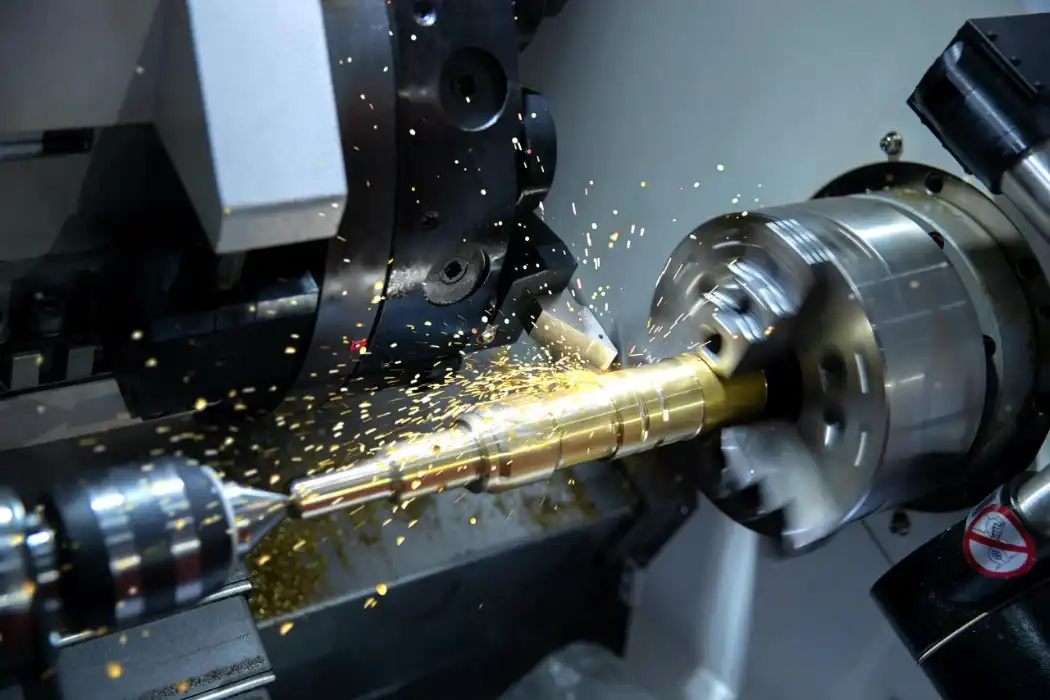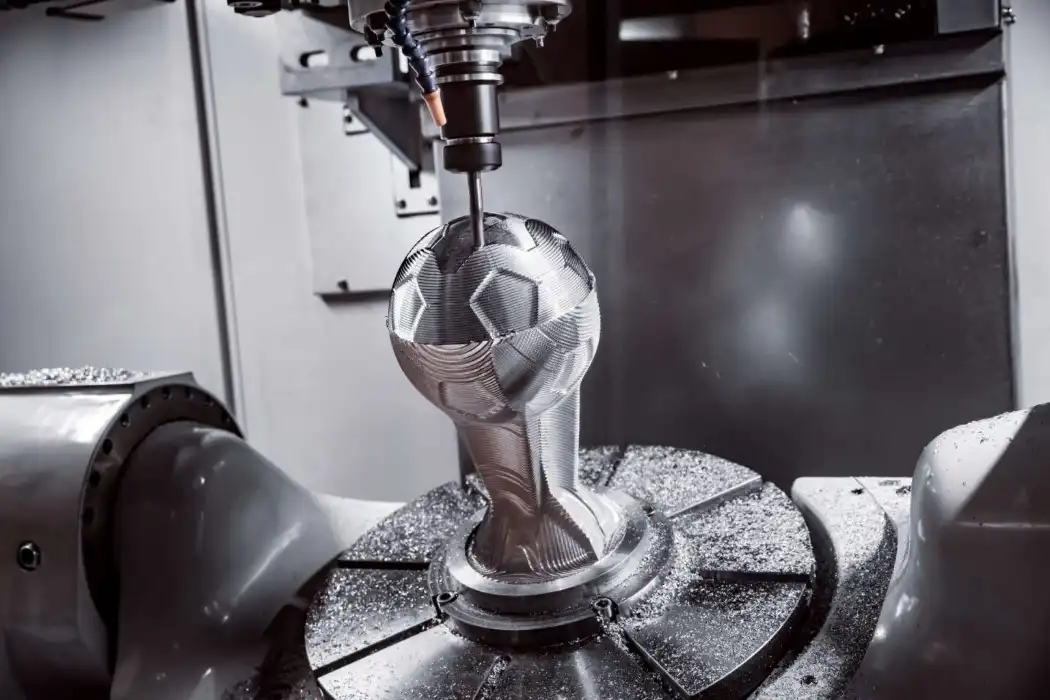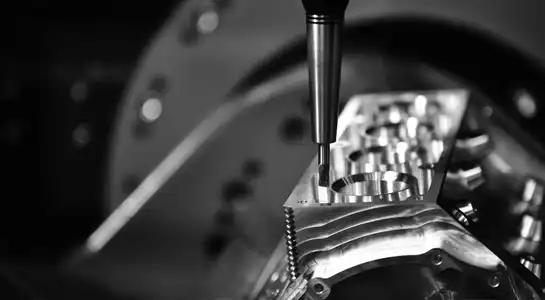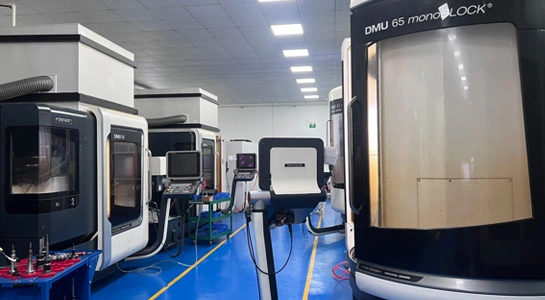What to Look for in a Reliable CNC Supplier?
When searching for a dependable CNC machining partner, several key factors should guide your decision. A trustworthy CNC supplier combines technical expertise, quality assurance, and customer service excellence. Look for a provider with a proven track record in precision manufacturing, state-of-the-art equipment, and a deep understanding of various materials. Additionally, seek out suppliers offering comprehensive services from prototyping to production, competitive pricing, and quick turnaround times. By carefully evaluating these aspects, you can find a CNC supplier that not only meets your current needs but can also support your long-term manufacturing goals.
Technical Capabilities and Equipment
State-of-the-Art Machinery
A top-tier CNC supplier should possess cutting-edge machinery capable of handling diverse manufacturing needs. Advanced 5-axis CNC machines, for instance, allow for complex geometries and intricate designs. Look for suppliers with a variety of CNC equipment, including mills, lathes, and routers, to ensure they can tackle a wide range of projects. Modern CNC technology not only enhances precision but also improves efficiency, reducing production times and costs.
Software and Programming Expertise
Beyond hardware, a reliable CNC supplier must demonstrate proficiency in the latest CAD/CAM software. This expertise enables them to translate your designs accurately into machining instructions. Suppliers should be adept at optimizing toolpaths, minimizing material waste, and maximizing production efficiency. Inquire about their capabilities in handling various file formats and their approach to programming complex parts.
Material Versatility
The ability to work with a diverse range of materials is crucial. A competent CNC supplier should have experience machining various metals, plastics, and composites. This versatility allows them to suggest the most suitable material for your project based on factors like strength, weight, cost, and application. Look for suppliers who can handle materials such as aluminum, stainless steel, titanium, and engineering plastics like ABS, POM, and PEEK.

Quality Assurance and Certifications
Quality Control Processes
Rigorous quality control is non-negotiable in CNC machining. A reliable supplier should have established quality assurance protocols at every stage of production. This includes incoming material inspection, in-process checks, and final product verification. Ask about their measurement and inspection tools, such as coordinate measuring machines (CMMs) and optical comparators. A supplier committed to quality will be transparent about their processes and willing to provide detailed inspection reports.
Industry Certifications
Certifications serve as tangible proof of a supplier's commitment to quality and industry standards. Look for ISO 9001:2015 certification, which demonstrates a robust quality management system. Depending on your industry, additional certifications like AS9100 for aerospace or ISO 13485 for medical devices may be relevant. These certifications indicate that the supplier adheres to stringent quality standards and undergoes regular audits to maintain compliance.
Tolerances and Precision
The ability to consistently achieve tight tolerances is a hallmark of a skilled CNC supplier. Inquire about the typical tolerances they can maintain and their experience with high-precision parts. A supplier confident in their capabilities should be able to provide examples of complex projects they've completed successfully. Don't hesitate to request sample parts or case studies to evaluate their precision firsthand.
Customer Service and Support
Communication and Responsiveness
Effective communication is vital in any manufacturing partnership. A reliable CNC supplier should be responsive to inquiries, provide clear and timely updates on project status, and be willing to discuss technical details openly. Look for a supplier that assigns dedicated project managers or points of contact to ensure smooth communication throughout the production process. Their ability to understand and articulate your requirements accurately is crucial for project success.
Design for Manufacturability (DFM) Support
A valuable CNC supplier goes beyond mere manufacturing; they offer insights to improve your designs for better manufacturability. This collaborative approach can lead to cost savings, improved functionality, and faster production times. Seek out suppliers who are willing to provide DFM feedback, suggest alternative manufacturing methods when appropriate, and help optimize your designs for CNC machining.
Flexibility and Scalability
Your chosen CNC supplier should be able to accommodate varying order volumes, from prototypes to full production runs. Flexibility in scheduling and the ability to handle rush orders can be crucial in meeting tight deadlines. Additionally, consider their capacity for growth - can they scale up production as your needs increase? A supplier with diverse capabilities and a robust network of resources is better equipped to support your long-term manufacturing requirements.
Conclusion
Selecting the right CNC supplier is a critical decision that can significantly impact your product quality, time-to-market, and overall manufacturing success. By focusing on technical capabilities, quality assurance, and customer support, you can identify a reliable partner capable of meeting your specific needs. Remember, the best CNC suppliers are those who view themselves as an extension of your team, committed to your success and willing to go the extra mile to ensure your satisfaction. Take the time to thoroughly evaluate potential suppliers, and don't hesitate to ask for references or visit their facilities if possible. With the right CNC partner, you'll be well-positioned to bring your innovative designs to life efficiently and effectively.

FAQs
What materials can be used in CNC machining?
CNC machining can work with a wide range of materials, including metals like aluminum, steel, and titanium, as well as plastics such as ABS, POM, and PEEK. The choice depends on your specific requirements.
How long does CNC machining typically take?
Turnaround times can vary based on part complexity, material, and quantity. Simple parts might be completed in a few days, while more complex projects could take several weeks.
Is CNC machining suitable for both prototypes and production runs?
Yes, CNC machining is versatile enough to handle both prototyping and production runs efficiently, making it a popular choice for various manufacturing needs.
Why Choose BOEN as Your CNC Supplier?
At BOEN, we pride ourselves on being a leading CNC supplier, manufacturer, and factory for prototypes and low-volume production. Our state-of-the-art facility houses advanced CNC machinery, enabling us to deliver precision parts across various industries. With our ISO 9001:2015 certification, we ensure consistent quality in every project. Our team's expertise in materials and manufacturing processes allows us to provide tailored solutions for even the most complex requirements. Experience the BOEN difference - contact us at contact@boenrapid.com for your next CNC machining project.
References
Smith, J. (2022). Advanced CNC Machining Techniques. Journal of Manufacturing Technology, 45(3), 112-125.
Johnson, L. et al. (2021). Quality Assurance in CNC Manufacturing. International Journal of Production Research, 59(8), 2345-2360.
Brown, R. (2023). The Future of CNC Machining: Trends and Innovations. Manufacturing Engineering, 170(4), 67-82.
Davis, M. (2022). Material Selection for CNC Machining: A Comprehensive Guide. Materials Today, 50, 100-115.
Wilson, T. (2021). Customer Service Excellence in Manufacturing Partnerships. Industrial Management, 63(5), 22-28.
Lee, S. et al. (2023). Design for Manufacturability in CNC Machining. Journal of Cleaner Production, 350, 131517.

How Can We Help?

Your Trusted Partner in Rapid Manufacturing.



